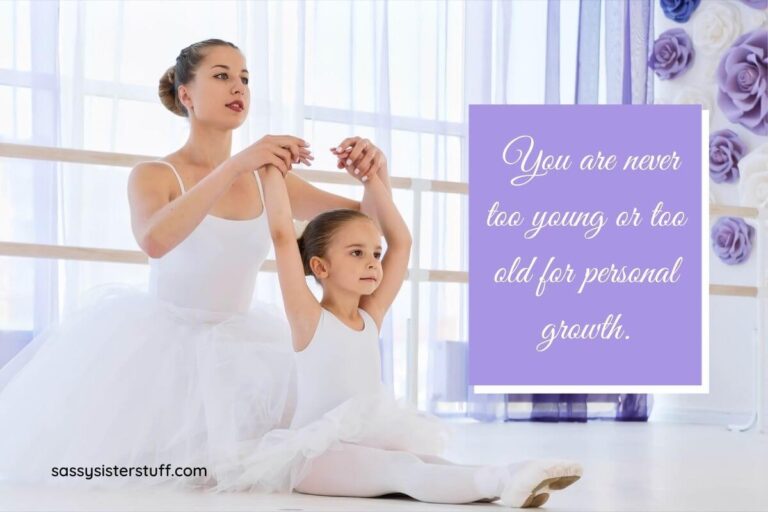15 Signs You’re More Confident Than You Realize After 50 and Why It Matters
As you reach your 50s and beyond, confidence can show up in ways you might not always notice. It’s not just about boldness or speaking loudly—it’s often quieter, more subtle, and rooted in the experiences you’ve gathered over time.
You might be more confident than you think, even if you don’t always feel that way. Recognizing these signs can help you appreciate the strength you already have and boost your self-awareness as you move forward.
You say no without feeling guilty

You’ve learned that your time and energy matter. Saying no doesn’t mean you’re letting someone down—it means you’re respecting your limits.
Even if you feel a little guilty at first, that’s normal. With practice, you realize saying no helps you stay balanced and focused on what truly matters.
Setting boundaries keeps you from burning out. When you say no confidently, you avoid overcommitting and protect your well-being. It’s not selfish—it’s necessary.
If you want tips to get comfortable with saying no, this guide on how to say no without feeling guilty can help.
You keep your head up and maintain eye contact

When you’re confident, you naturally keep your head up instead of looking down or avoiding faces. It shows you’re comfortable with yourself and open to what’s around you.
Maintaining eye contact is a simple but powerful sign. It signals you’re engaged and ready to connect without feeling insecure.
If you find yourself holding eye contact longer than before, that’s a good sign you’re more confident than you think. It helps build trust and shows you’re focused on the moment.
Learning to look people in the eyes can instantly improve how confident you appear in conversations and daily interactions. For more tips on this, check out ways to improve your eye contact and confidence.
You don’t seek constant approval from others

You’re comfortable making decisions without needing everyone to agree. You trust your judgment and don’t fish for compliments or reassurance all the time.
When you share your thoughts or choices, you’re not worried about how others will react. You know your worth isn’t tied to their approval.
This doesn’t mean you ignore feedback, but you don’t depend on it to feel good about yourself. If you want to learn more about approval-seeking habits, check out this article on approval-seeking behavior and how to heal.
You listen more than you speak in conversations

If you find yourself listening more than talking, that’s a good sign. It means you’re comfortable enough not to dominate the conversation. You don’t feel the need to prove yourself all the time.
Listening closely shows you value what others have to say. It also means you’re confident in your ability to respond thoughtfully when it’s your turn.
People who listen more tend to learn more. You’re likely more interested in understanding others than in being heard. This balance often comes with experience and self-assurance, especially after 50.
Being quiet sometimes isn’t shyness—it’s a sign of confidence in itself.
See more about the value of listening in conversations here.
You’re comfortable with silence

You don’t feel the need to fill every gap in conversation. Silence feels natural instead of awkward.
When you’re with others, you can simply be present without rushing to speak.
This shows you trust yourself and the moment. You don’t need constant chatter to prove your worth.
Being okay with silence means you’re confident enough to listen more and not always compete for attention.
It’s a quiet way of showing self-assurance that not everyone has mastered.
If you find peace in these quiet moments, that’s a good sign your confidence runs deeper than you might think.
For more on this, check out how being quiet can also be fierce at the same time.
You admit when you’re wrong and change your mind

When you’re confident, you don’t feel the need to defend every opinion. You can admit when you’re wrong without taking it personally.
Changing your mind shows you’re open to new ideas and growth. It’s a sign you trust yourself enough to adjust your views based on better information.
This flexibility helps you avoid stubbornness. It means you value learning over being “right” all the time. That’s a confident mindset.
Recognizing this in yourself is a big step toward owning your confidence, especially after 50.
For more on confidence signs, see this video on being more confident than you think.
You protect your personal time and energy

You’ve learned that your time is valuable, so you don’t waste it on things that drain you. Saying no feels natural because you know it helps keep your balance.
You set boundaries with people and situations that don’t serve you. Protecting your energy means you can focus on what truly matters to you.
You prioritize activities and relationships that bring you joy and peace. This shows a quiet confidence in knowing what’s best for your well-being.
If you find yourself saying no more often, it’s a sign you’re honoring your limits and not overextending yourself unnecessarily.
This ability to guard your time and energy grows stronger as you realize its importance to your happiness.
See more about this mindset shift in the practical guide to confidence here.
You engage in positive self-talk regularly

You catch yourself replacing negative thoughts with encouraging words. It’s not about ignoring reality but reminding yourself that you can handle challenges.
This habit helps you stay calm and focused when things get tough. You might even pause a negative thought and consciously choose a kinder response to yourself.
Positive self-talk is a sign you’re aware of your mindset and actively working to improve it. If this sounds like you, it means you’re quietly building your confidence every day without needing to show off or prove anything.
Learning to use positive self-talk isn’t cheesy—it’s practical and boosts your self-esteem over time, especially after 50. For tips on this, check out how positive self-talk truly works.
You stick to your ideas without trying to please everyone

You know what you believe in and don’t feel the need to change just to fit in. When you share your thoughts, it’s because you mean them, not because you want others to like you.
This kind of confidence means you can handle disagreement without taking it personally. You trust your own judgment more than the approval of others.
By staying true to yourself, you show real strength. It’s not about being stubborn but about respecting your own values while being open to honest conversations. Learning this is a big part of how confident people think differently.
For more on how confident people think, check out 15 ways confident people think differently.
You don’t beat yourself up over small mistakes

When you’re confident, you don’t let little slip-ups ruin your day. You recognize that everyone makes mistakes, and they don’t define your worth. You learn from them and move on without dwelling too much.
You’ve probably noticed that you don’t replay every small error in your head anymore. Instead, you treat yourself with kindness rather than harsh judgment.
If you catch yourself being overly critical, you remind yourself that perfection isn’t the goal. Silencing your inner critic helps you focus on what really matters rather than getting stuck on minor flaws. This mindset is a clear sign of growing self-assurance. See more about stopping self-beating.
You know where to find info when you don’t know something

You’ve learned that it’s okay not to have all the answers. Instead of guessing or stressing, you know exactly where to look for reliable information.
Whether it’s books, trusted websites, or asking the right people, you’ve built a go-to list that helps you find what you need fast. This shows quiet confidence in your ability to handle situations.
It’s not about knowing everything; it’s about knowing how to get what you need when you don’t. That’s a smart kind of confidence many don’t realize they have.
For tips on recognizing subtle confidence, check out signs you’re more confident than you think.
You uplift and encourage people around you

You often find yourself cheering others on, whether it’s a colleague or a friend. Your genuine support shows you believe in their abilities.
When you offer encouragement, it’s not just for show—you understand how important it is to build people up. This confidence lets you share positive energy without feeling threatened.
You know how to listen and respond with kindness. Your words have a way of making others feel more capable and valued, which comes from your own quiet self-assurance.
Being a source of strength for those around you is a clear sign you’re more confident than you might think.
For more on recognizing this, see 7 signs you’re more confident than you think.
You don’t hide your emotions or face discomfort

You’re comfortable showing how you feel, even if it’s not always positive. Keeping your head up and not avoiding tough emotions means you accept yourself as you are.
Facing discomfort without backing down is a sign you trust your ability to handle things. You don’t shy away from honest conversations or challenging situations.
This kind of confidence lets you be real with others. You don’t feel the need to cover up or pretend, which shows you have a strong sense of self. For more on this, see signs you’re more confident than you think.
You feel quietly proud of who you are

You don’t always need to shout about your achievements to feel good. There’s a calm sense of pride that comes from simply knowing your worth.
It’s the kind of confidence that lets you appreciate your journey without needing constant validation. You recognize your strengths and accept your imperfections.
This quiet pride shows in the way you carry yourself and the choices you make. It’s subtle but steady, and it often grows stronger after 50 as you become more comfortable in your skin.
Some people call it being “quietly proud,” and it’s a sign you’ve found confidence beyond the need for external approval.
Learn more about feeling quietly proud of yourself here.
You aren’t afraid to stand your ground

You’ve learned to trust your opinions and values. When something doesn’t feel right, you speak up without hesitation.
It’s not about being stubborn, but about knowing what matters to you. You don’t shy away from healthy debates or defending your choices.
This confidence grows from experience and self-awareness. It shows you’re comfortable with who you are, even when others disagree.
Standing your ground doesn’t mean you close off to new ideas. It means you respect yourself enough to be firm when needed. This is a quiet but strong sign of true confidence after 50.
Related: 15 Clever Hacks To Reduce That Never-Ending Grocery Bill

Managing grocery expenses can be challenging for many households, especially with rising food costs and fluctuating budgets.
However, with some creativity and resourcefulness, you can implement numerous clever hacks to reduce your never-ending grocery bill without sacrificing the quality or variety of your meals.







